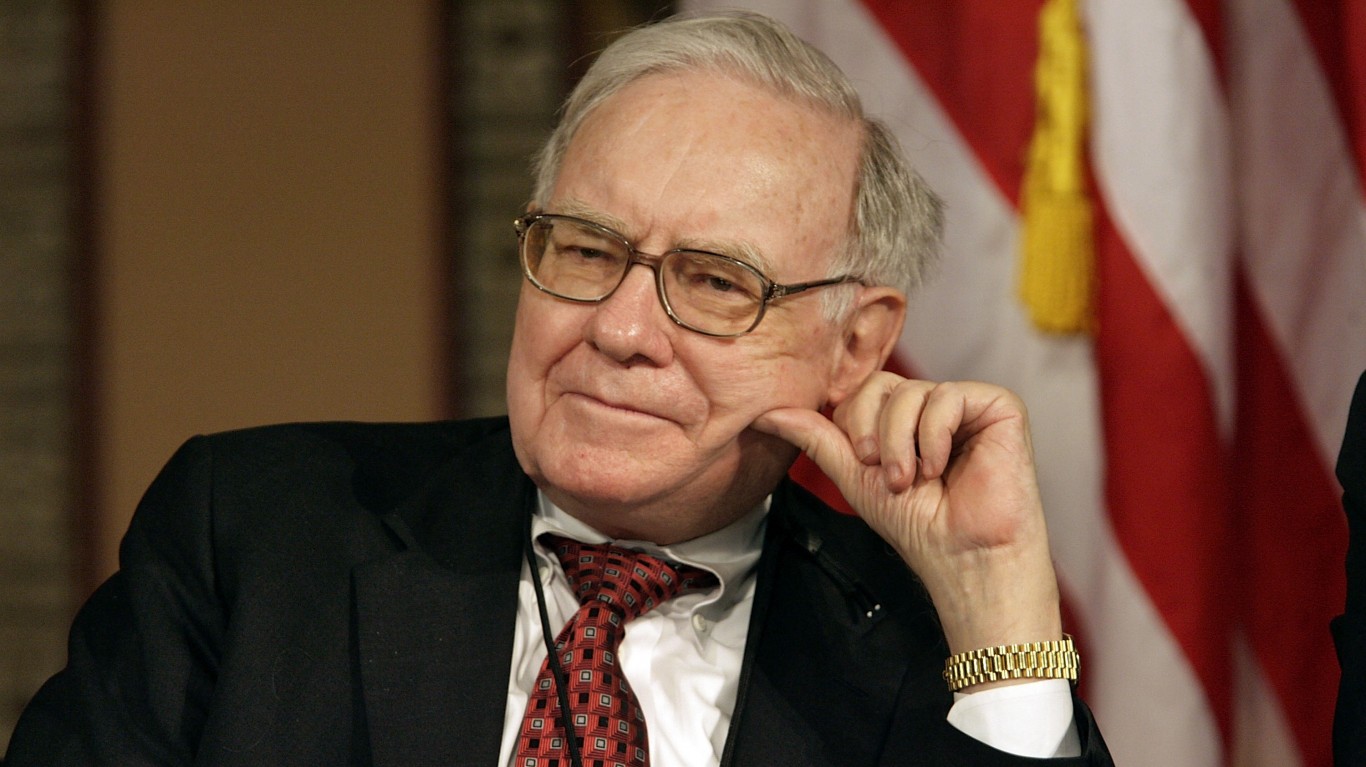
Healthy corporate earnings seemed to be enough to continue the eight-year old bull market in late April, with major indexes near all-time highs despite political and geopolitical uncertainties that had oil prices in retreat. Judging by the most shorted stocks traded on the Nasdaq, short sellers seemed cautious. Moves in those shorted stocks were mixed and mostly mild between the April 13 and April 28 settlement dates.
The most notable pull back was in Sirius XM shares, which allowed it to slip from the top of the list. And Synergy Pharmaceuticals, still fairly new to the top six, held on to its spot with a notable bump in the number of its shares short in those two weeks.
Note that still only three Nasdaq stocks had more than 100 million shares short, as of the end of last month. However, two of them remain very far ahead of the pack.
Frontier Communications
After rising around 2% in the previous period, the number of shares short in Frontier Communications Corp. (NASDAQ: FTR) pulled back marginally to more than 256.17 million as of the most recent settlement date. That was 22.0% of the telecom’s float, as well as the 17th consecutive period with more than 200 million shares short. The daily average volume dropped sharply again, and the days to cover rose from about seven to around nine.
Frontier finally announced the long-feared dividend cut, but not until after the latest settlement date. The share price was down around 3% by the end of last month. The stock has fallen further since then, and it hit a 52-week low of $1.40 on Tuesday. The 52-week high of $5.53 was seen about a year ago. The shares closed most recently at $1.43 apiece.
Sirius XM
The almost 250.50 million Sirius XM Holdings Inc. (NASDAQ: SIRI) shares short by the end of April was almost 6% lower than on the previous settlement date. Only in two periods so far this year have the number of shares short grown, and the most recent figure was 16.8% of the total float. As the average daily volume soared to a year-to-date high, the days to cover dropped from more than 13 to less than nine.
JPMorgan downgraded Sirius during the short interest period. The stock ended the final two weeks of the month nearly 3% lower, while the Nasdaq retreated around 4% between the settlement dates. After hitting a 52-week high of $5.53 in March, the stock closed this past Tuesday at $4.87 a share. The 52-week low of $3.74 was seen last summer.
AMD
By the end of April, Advanced Micro Devices Inc. (NASDAQ: AMD) had more than 120.91 million shares short. That was a gain of more than 1% from the total on the previous settlement date. It represented 14.6% of the company’s float and it was the highest level of short interest in at least a year. Also, it would take more than three days to cover all short positions.
Early last month, Goldman Sachs predicted the stock would underperform. While the April 28 share price was more than 8% higher than on the previous settlement date, it tumbled about 25% shortly thereafter. The stock closed at $10.18 on Tuesday, more than 10% lower year to date. Shares have changed hands at between $3.34 and $15.55 in the past year.
Intel
More than 90.88 million Intel Corp. (NASDAQ: INTC) shares were sold short as of the most recent settlement date. Short interest fell less than 2% during the period to total 1.9% of the company’s float. Note that it was still the fourth period in a row with more than 90 million shares short. As of the end of the month, it would take less than four days to cover all short positions.
Intel shares got beat up after a disappointing earnings report. Though the stock ended the short interest period more than 2% higher, that was after being up about 6% at one point. It is now trading at about the same price as at the beginning of the year. The most recent close at $36.37 a share compares to a 52-week trading range of $29.50 and $38.45.
Opko Health
Opko Health Inc.’s (NASDAQ: OPK) short interest of more than 74.84 million shares on the most recent settlement date was fractionally lower than in the previous period. And it was 22.2% of the total float, as well as the seventh consecutive period with more than 70 million shares short. The daily average volume fell to a year-to-date low, and the days to cover rose to a year-to-date high of about 23.
For well more than a year, the CEO frequently has bought batches of Opko shares. The stock closed most recently at $7.53 a share, in a 52-week trading range of $7.11 to $12.15. The share price ended the two-week short-interest period about 2% higher, though it had been down more than 6 percent at one point. The stock is now down about 19% since the beginning of the year.
Synergy Pharmaceuticals
Short interest at Synergy Pharmaceuticals Inc. (NASDAQ: SGYP) totaled more than 68.55 million shares on April 28, which was up more than 5% from the prior settlement date. That was again the highest level of short interest in at least a year, and it was a whopping 30.8% of the total float. The days to cover jumped from around nine to more than 16 during the period.
This biopharmaceutical company is focused on treatments for constipation and irritable bowel syndrome. Short sellers watched the stock sink more than 9% during those two weeks, and even more afterward. The most recent closing share price was $4.04, which is down more than 33% from the beginning of the year. The 52-week trading range is $2.62 to $7.15.
And Others
Rounding out the top 10 were Yahoo! Inc. (NASDAQ: YHOO), Novavax Inc. (NASDAQ: NVAX), Comcast Corp. (NASDAQ: CMCSA) and Oclaro Inc. (NASDAQ: OCLR), which leaped into the top 10 during the period, while the others saw only marginal moves. Oclaro short sellers have been piling on since last November.
Lingering just outside the spotlight of the top 10 most shorted Nasdaq stocks are Groupon Inc. (NASDAQ: GRPN), BlackBerry Ltd. (NASDAQ: BBRY) and Apple Inc. (NASDAQ: AAPL).
“The Next NVIDIA” Could Change Your Life
If you missed out on NVIDIA’s historic run, your chance to see life-changing profits from AI isn’t over.
The 24/7 Wall Street Analyst who first called NVIDIA’s AI-fueled rise in 2009 just published a brand-new research report named “The Next NVIDIA.”
Click here to download your FREE copy.
Thank you for reading! Have some feedback for us?
Contact the 24/7 Wall St. editorial team.



